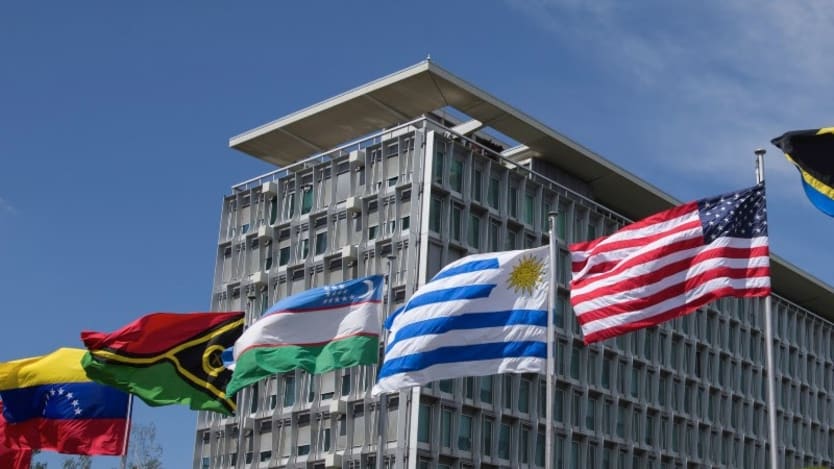
LONDON — An international project to share intellectual property, scientific data, and know-how to fight the coronavirus pandemic was launched by the World Health Organization Friday, with the support of 37 countries.
The COVID-19 Technology Access Pool, or C-TAP, was welcomed by campaigners as a key step in facilitating access to future drugs and medical tools — but many key players are currently absent from the list of supporters.
C-TAP aims to accelerate the development of vaccines and medicines through the sharing of research and information and to increase manufacturing capacity for any products that are developed. Its launch was accompanied by a “Solidarity Call to Action,” which detailed its objectives.
The pool, which is voluntary, was first proposed by Costa Rica and has gained support among a slew of low- and middle-income countries, and a handful of high-income states, including Norway and the Netherlands.
For Pro subscribers: The return of ‘global public goods’
What's behind the revival of this '90s term?
“The COVID-19 Technology Access Pool will ensure the latest and best science benefits all of humanity,” said Costa Rica President Carlos Alvarado at the launch. “Vaccines, tests, diagnostics, treatments, and other key tools in the coronavirus response must be made universally available as global public goods.”
The other supporting countries are Argentina, Bangladesh, Barbados, Belgium, Belize, Bhutan, Brazil, Chile, Dominican Republic, Ecuador, Egypt, El Salvador, Honduras, Indonesia, Lebanon, Luxembourg, Malaysia, Maldives, Mexico, Mongolia, Mozambique, Oman, Pakistan, Palau, Panama, Peru, Portugal, Saint Vincent and Grenadines, South Africa, Sri Lanka, Sudan, Timor-Leste, Uruguay, and Zimbabwe.
“At this point of time, I think it’s nonsense, and at this point in time, I think it’s also dangerous.”
— Dr. Albert Bourla, chairman and CEO, PfizerBut influential countries including the United States, United Kingdom, Switzerland, Germany, and France, which have put millions toward vaccine research or are home to large pharmaceutical companies, are so far absent from the list.
According to WHO, the pool consists of five elements: the public disclosure of gene sequences and data, transparency of clinical trial results, conditions attached to public funding of pharmaceutical companies, and promotion of open innovation and technology transfer. The pool also asks supporters to licence products to the Medicines Patent Pool, a United Nations-backed body for sharing licenses and patents.
The idea has been met with derision by key players in the pharmaceutical industry — it was branded “nonsense” by Dr. Albert Bourla, chairman and CEO of Pfizer, at a press conference Thursday.
Asked about intellectual property pools, he said: “At this point of time, I think it’s nonsense, and at this point in time, I think it’s also dangerous. ... The risks that we are taking [in search of a vaccine] is billions of dollars. And the chances that we are getting are still not very good ... That people are investing their billions, hundreds of biotechs, to find a solution, to [then] have a discussion ... that ‘if you discover it, we are going to take your IP,’ I think it’s dangerous.”
Making a vaccine accessible: A glossary of terms
From patents to pooling, Devex explains the key terms in the jargon-heavy debate over vaccine access.
However, others point out that public funds have also been poured into the research effort, and the announcement of the C-TAP project was welcomed by campaigners.
“We think this is a very important step towards facilitating global equitable access for medical tools,” said Hu Yuan Qiong, senior legal and policy adviser for Médecins Sans Frontières’ Access Campaign.
MSF’s past experience showed that “monopolies backed by intellectual property and other exclusivities” impede access in countries where the NGO works and are “unacceptable,” especially when “there is so much public money for vaccine development.”
Duncan Matthews, professor of intellectual property law at Queen Mary University of London, welcomed C-TAP as an “important political statement.”
He said the pooling of data beyond intellectual property was key, as it meant that valuable regulatory data or manufacturing information — which can be trade secrets — would also be shared. Its position as a central resource led by WHO was also valuable.
The absence of countries with powerful pharmaceutical companies from the list was unsurprising to Professor Ken Shadlen, head of the department of international development at the London School of Economics.
“I’d be surprised if governments [such as the U.K. and Switzerland] are going to respond to these [first three solidarity] requests in the way that it's written,” he said.
He added it was likely that middle-income countries, particularly in Latin America, would be most keen for C-TAP to be a success.
“Really poor countries have less of a need because most likely, especially for vaccines ... UNICEF and Gavi will make [them] available at a really low price. But the middle-income ones are the ones left out,” he said.
Hu said she was “disappointed” not to see other countries sign up to the pool, but added, “this is just the first step.”
“Once the moment of solidarity is announced and established, what matters [is] concrete implementations; hard work needs to happen after today,” she said.






